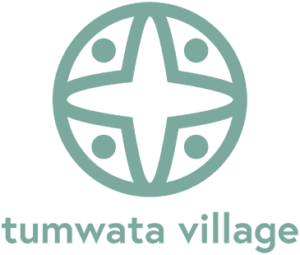A look at the Confederated Tribes of Grand Ronde’s past, present and future ties to one of our most treasured ancestral homelands.
-
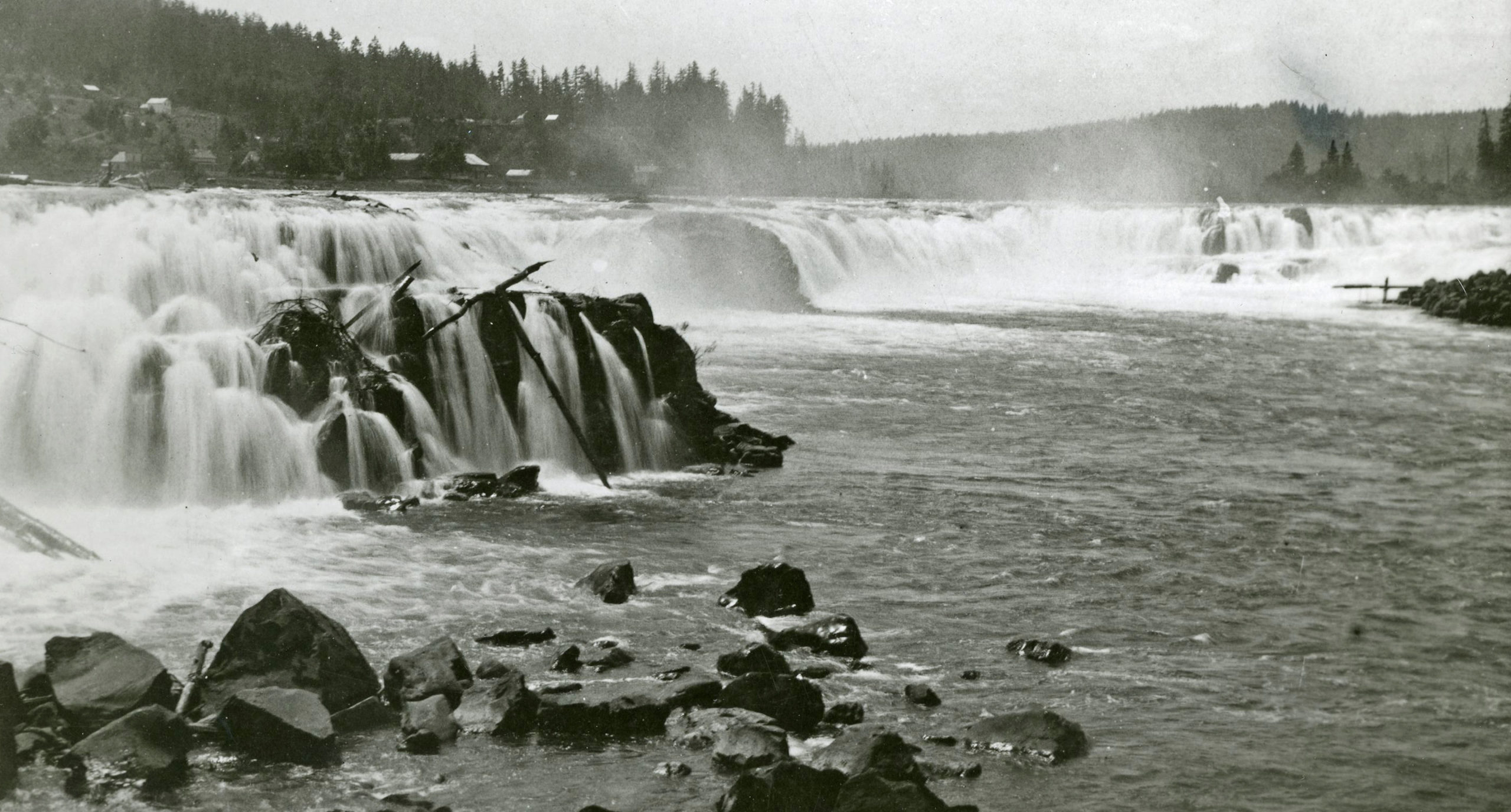
Ikanum
The storied timeThe importance of Willamette Falls to the Grand Ronde people can be traced back through our traditional stories, or our Ikanum. Our Ikanum tell us how Coyote and Meadowlark traveled down the river with a rope made of young hazel shoots. It was near what is now known as Oregon City that they pulled that rope tight, and Coyote used his powers to turn that rope into rocks – creating Willamette Falls. -
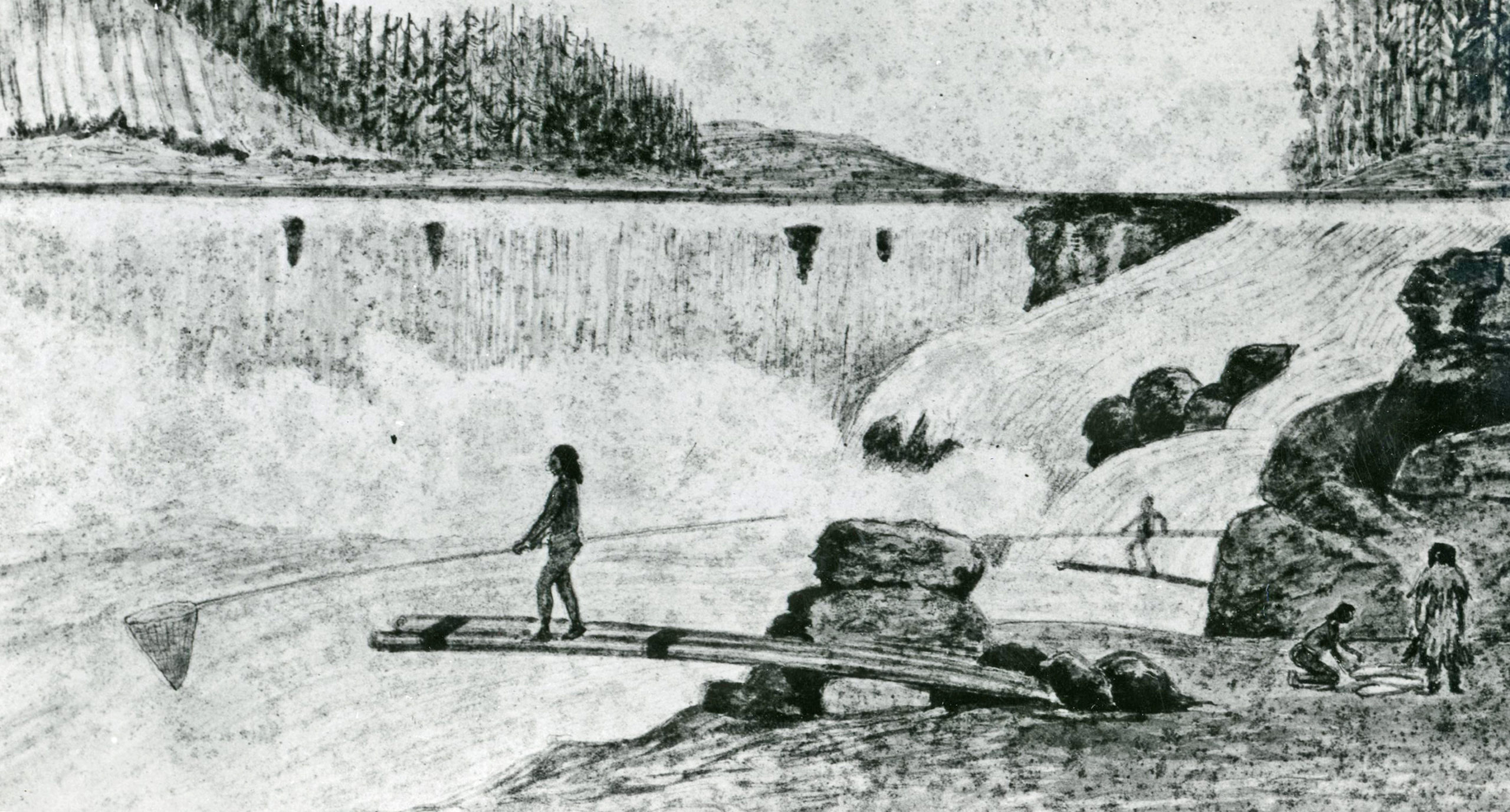
Lifeways
Life and Use prior to 1820The Clackamas and Clowwewalla people were dependent on fishing as a way of life. The Clowwewalla were year-round residents and were responsible for the management of the Willamette Falls fishery. Even today, this part of the Tribe’s ancestral homelands is an important location for fishing and gathering for Grand Ronde Tribal Members. -
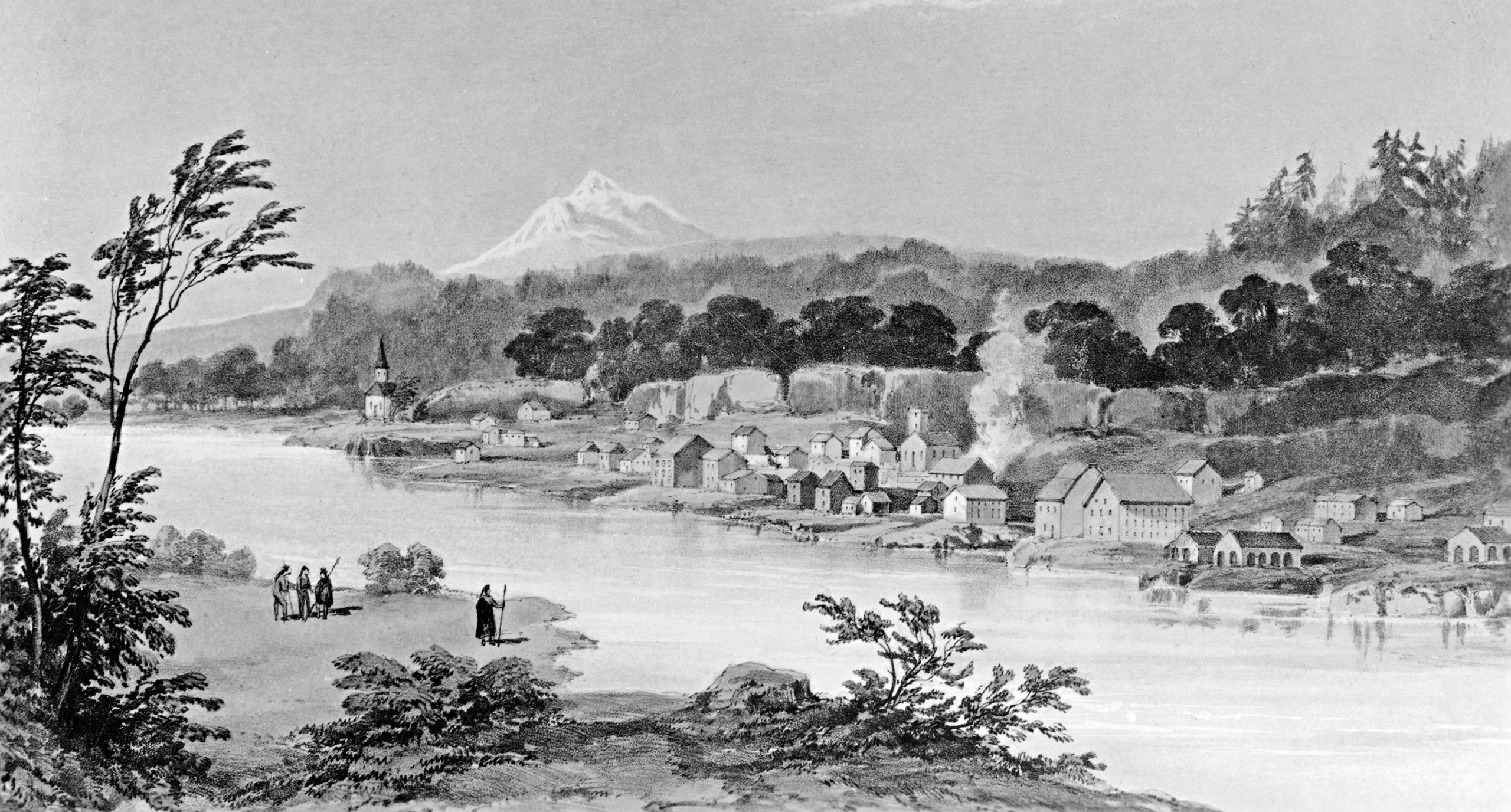
Early Incursion
Contact Window: 1806-1845Regular interactions between the natives at Willamette Falls, the Clackamas and Clowwewalla people, has been well documented throughout history. Beginning in 1806, visitors such as William Clark, fur trappers such as Alexander Henry and government officials such as William A. Slackum, began documenting their observations and interactions with the tribal people at Willamette Falls, their villages and the fishery that supported them. -
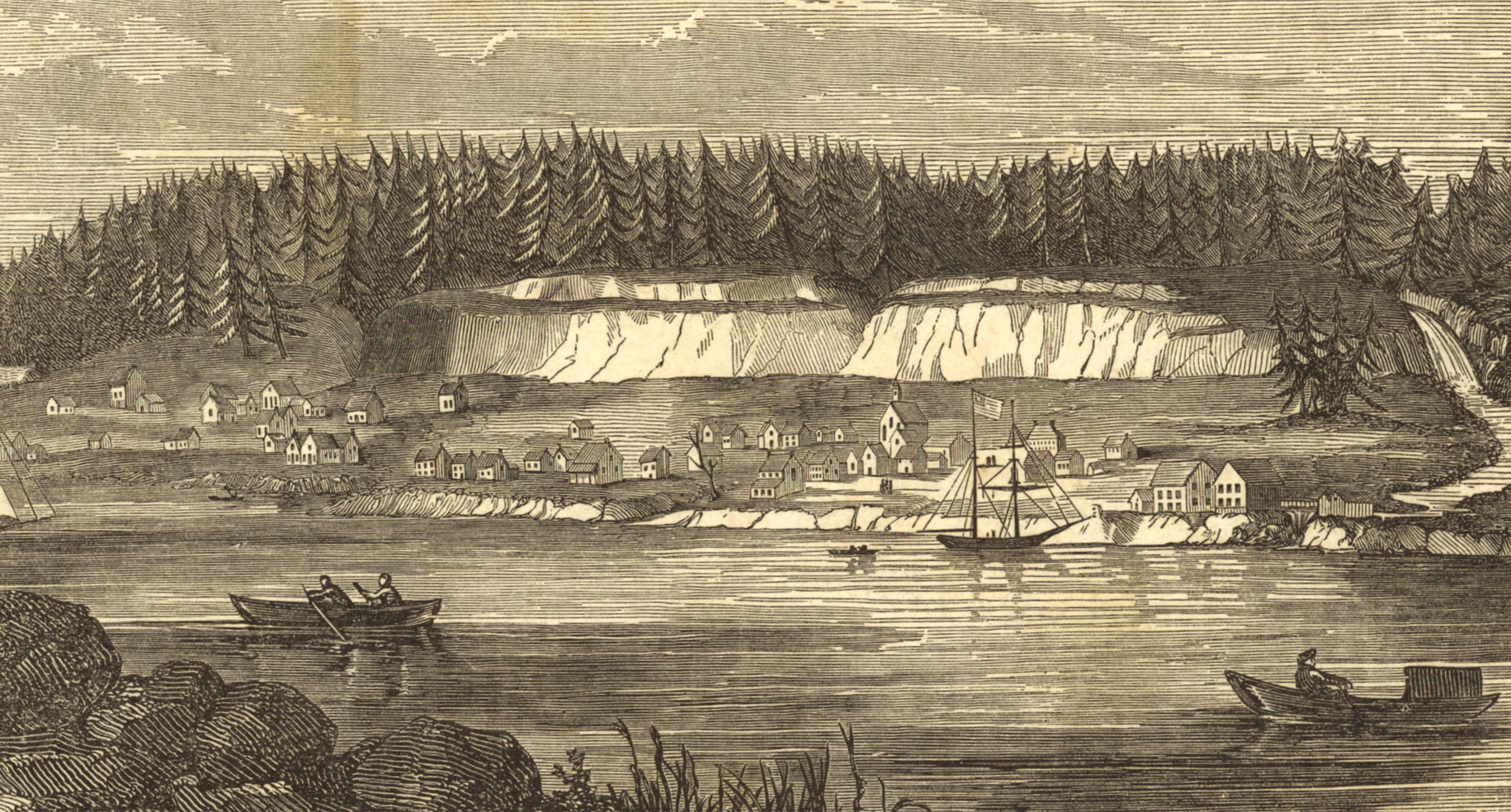
Removal
1840/45-1860The Willamette Valley Treaty of 1855 provided for the removal of tribal people from the area of Willamette Falls and beyond to the Grand Ronde Indian Reservation. The federal government removed people from the Clackamas, Tumwater band of Clowwewalla, Molalla and Kalapuya tribes. -
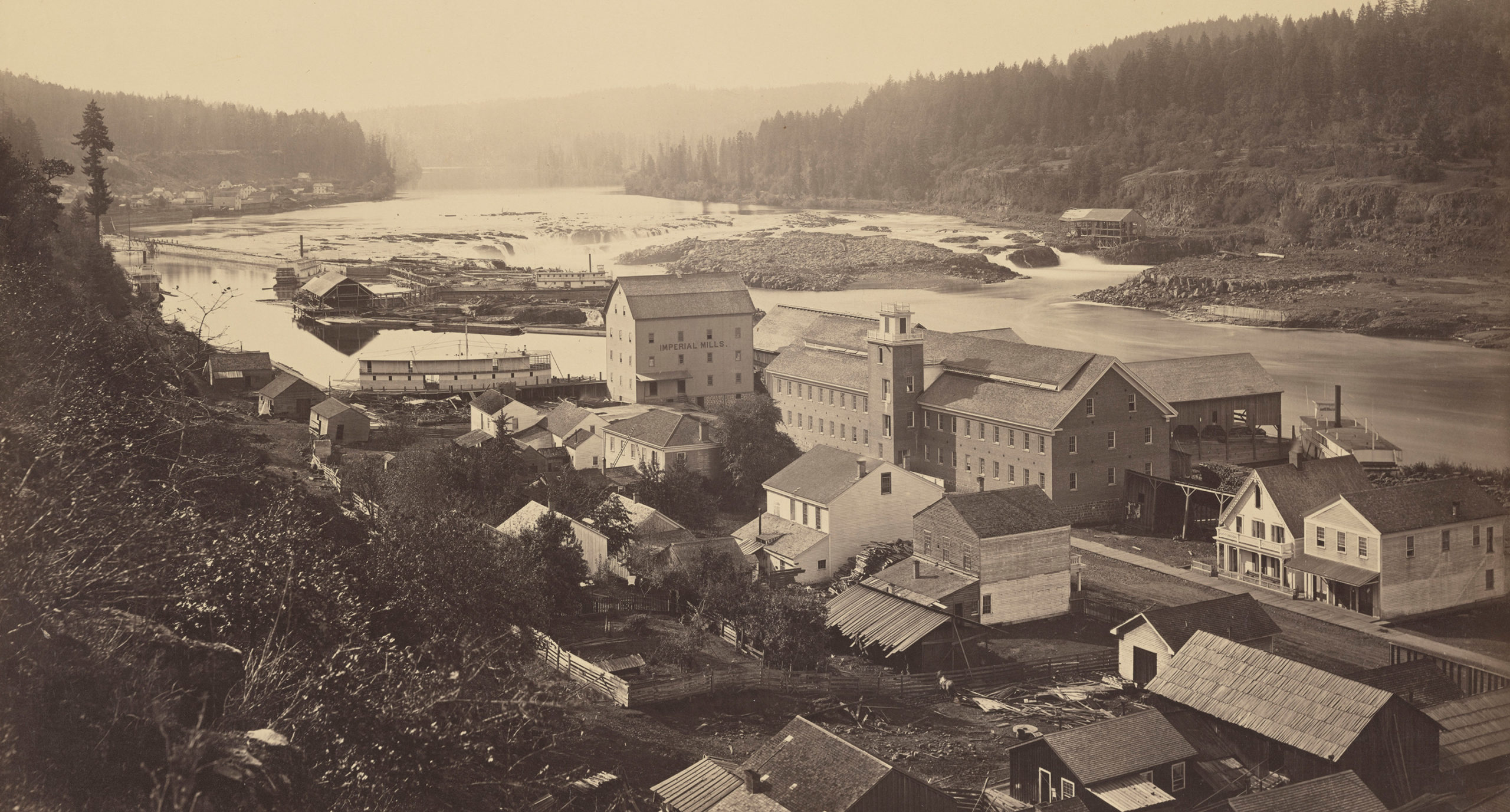
Survival and Devastation
1860-2011Tribal members return to Tumwata Willamette Falls to fish. Industrialization and contamination of the site spreads. The Western Oregon Indian Termination Act of 1954 is passed, severing the trust relationship between the federal government and the Tribe. -
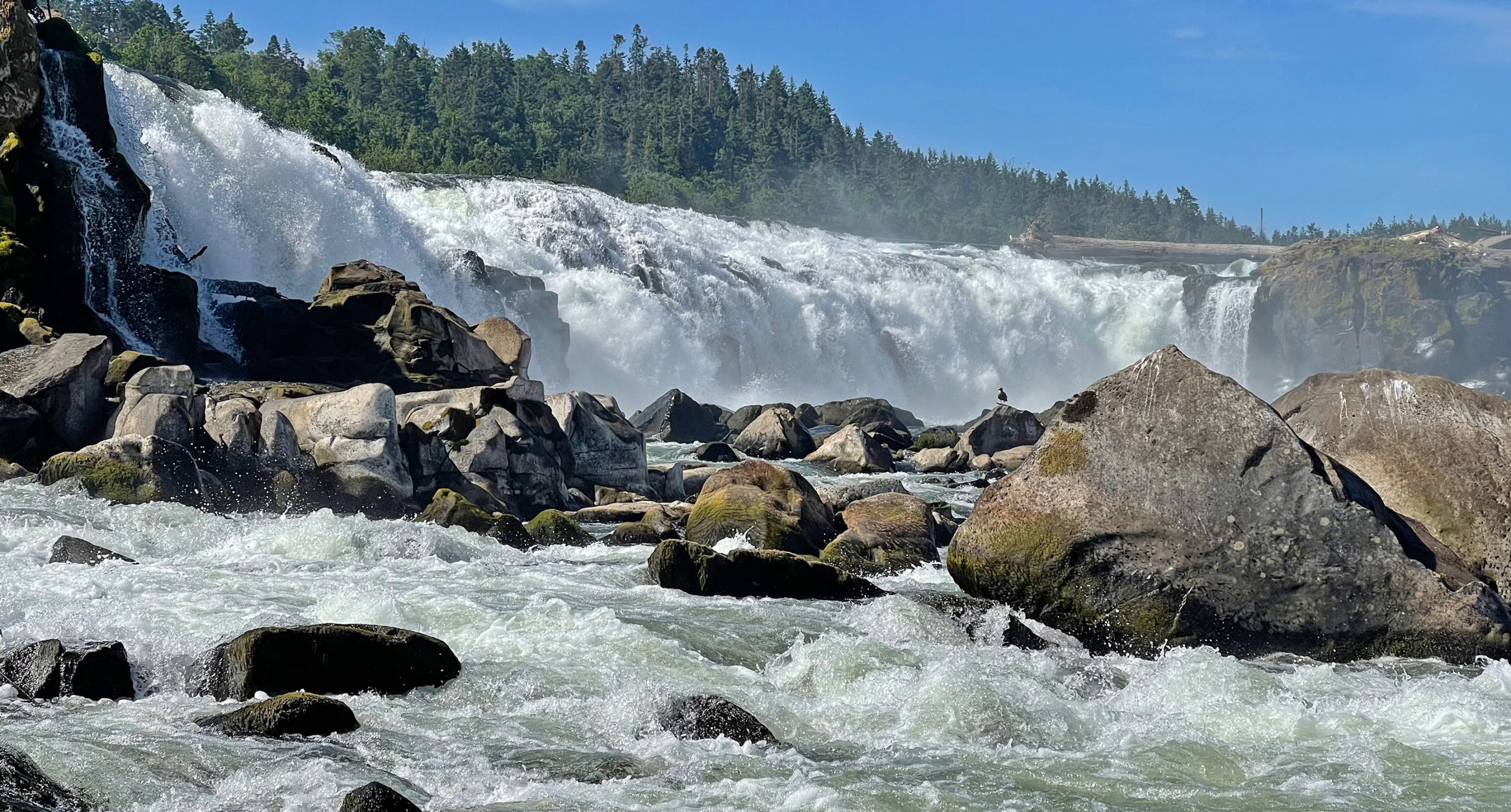
Healing
2019The Confederated Tribes of Grand Ronde purchases the property. Efforts continue for river cleanup, fish restoration and overall revitalization of the site.
